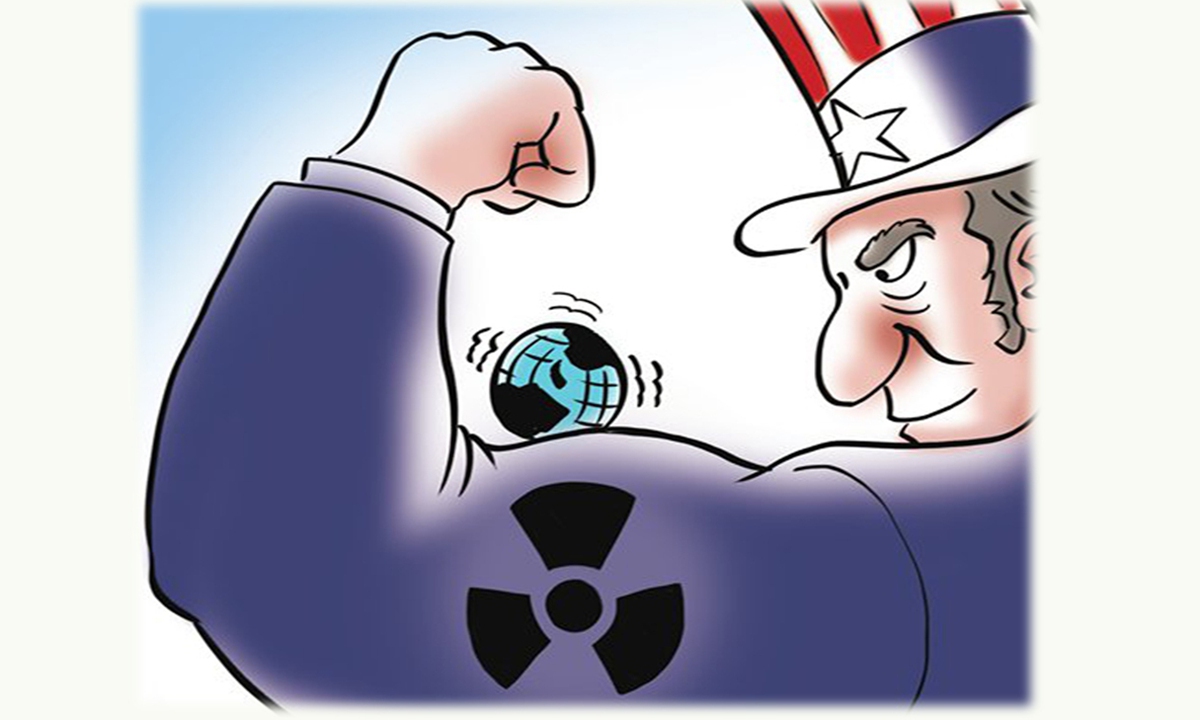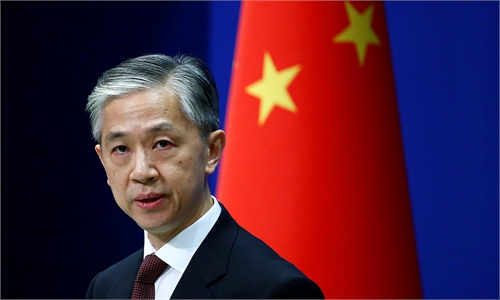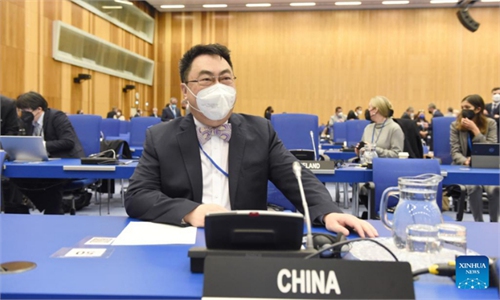
Illustration: Liu Rui/Global Times
A US military test rocket, the Minotaur II+, which will be used for the LGM-35 Sentinel intercontinental ballistic missile (ICBM) and its nuclear warhead, the Mk21A, exploded about 11 seconds after launch earlier this month. The debut ended in failure, but it shows that the US is accelerating the replacement of its land-based ICBMs and nuclear weapon delivery vehicles.
A report published in June by the Stockholm International Peace Research Institute noted, "A key finding is that despite a marginal decrease in the number of nuclear warheads in 2021, nuclear arsenals are expected to grow over the coming decade," and the "post-cold war decline in nuclear arsenals is ending." This will be an important turning point in the process of global nuclear disarmament and nuclear weapons are set to stage a comeback from the fringes of global politics.
There are three main reasons for the rearmament trend.
To begin with, the prospects for US and Russian nuclear disarmament are gloomy. If we are talking about a major cut in the global nuclear arsenal, the key is whether the US and Russia will make the determination to cut theirs. After years of disarmament, the US and Russia, together, still possess more than 90 percent of the world's nuclear weapons. There were some positive signs, including the Joint Statement of the Leaders of the Five Nuclear-Weapon States on Preventing Nuclear War and Avoiding Arms Races, issued in January, which said that "a nuclear war cannot be won and must never be fought." However, since the outbreak of the Russia-Ukraine conflict, ties between Russia and the US are now frozen. It is increasingly harder for the two countries to keep discussing nuclear disarmament. In April, Foreign Policy published an article with a pessimistic tone, "How to Avoid the Dark Ages of Arms Control."
Second, global strategic stability has been eroded and undermined, triggering a chain reaction of nuclear development. In terms of the ending of post-cold war decline in nuclear arsenals, the US is the biggest driving force. It already has a huge nuclear arsenal and advanced conventional weapons, but Washington is not satisfied. It is continuing to develop missile defense systems while upgrading its nuclear arsenal.
The US alone spent $44.2 billion on its nuclear arsenal in 2021, up 12.7 percent from a year earlier constituting half of global nuclear expenditures. Against the backdrop, which of the countries the US considers "major competitors" or "potential adversaries" would be willing to sit back and let the viability and defense penetration ability of their strategic forces be weakened, while placing the security of their people in times of crisis on the imaginary goodwill and self-restraint of the US?
History proves that US goodwill is never reliable when it has the advantage of a "dimensionality reduction strike," or absolute advantage in battlefields. It was the US that pushed the first domino in global strategic stability, triggering a series of domino effects throughout Eurasia.
Curbing the trend of an increase in nuclear warhead numbers requires safeguarding the fundamental goal of maintaining global strategic stability, with the US taking the lead in adopting positive measures to limit or even eliminate its missile defense program, banning the weaponization of space, and recognizing and respecting the nuclear deterrence capabilities of other nuclear-weapon states (NWS).
Third, the back door to nuclear proliferation is opening wider in more diverse forms, one of which is the proliferation of nuclear submarines. The US, the UK, and Australia previously reached an agreement to help Australia develop nuclear submarines fueled with weapons-grade uranium enriched to more than 90 percent uranium-235, which sets a bad precedent for other countries to follow suit. Another form is geographic nuclear proliferation through "nuclear sharing." Some Japanese politicians have previously considered introducing US nuclear weapons into Japan.
The resurgence in the number of nuclear weapons is a key indicator. However, the scale of nuclear weapons is not everything in terms of this issue. What's more important is how major powers prevent and manage conflict while guarding against nuclear escalation. How to avoid one of the most important inventions of humankind from turning common glory into ashes is a question that all countries, especially the NWS, need to seriously consider.
The author is director of Arms Control Studies Center, China Institutes of Contemporary International Relations. opinion@globaltimes.com.cn


